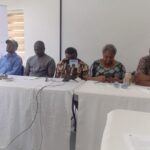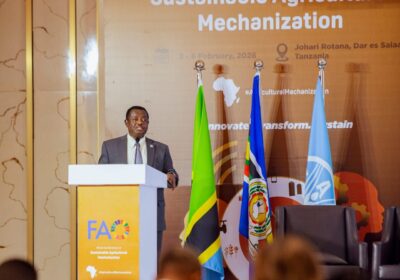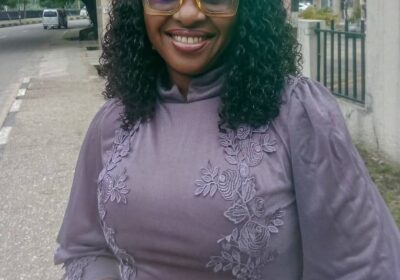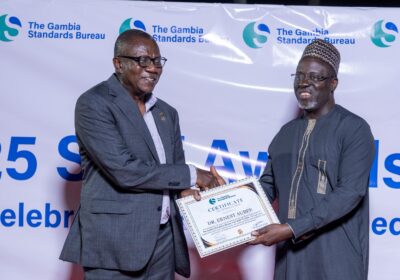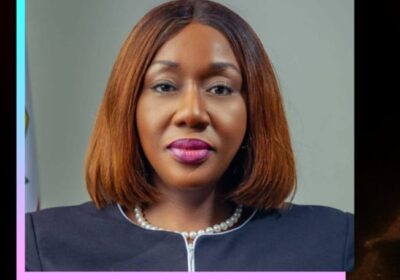When Science Meets Resilience: Biomedical Researcher Josephine Wambani Turns Rejection into a Lesson in Redirection
By Raymond Enoch.
In the world of science, where discovery often begins with trial and error, Biomedical Research Scientist Josephine Wambani has shown that resilience is as crucial in life as it is in the laboratory. Her reflections on rejection and renewal have inspired professionals across disciplines, illustrating how personal setbacks can become powerful catalysts for growth and redirection.
Josephine, who has served with the Kenya Medical Research Institute (KEMRI), shared a deeply personal story about her experience with job interviews and how disappointment reshaped her understanding of success. Her story began when she received an invitation for an interview for the position of Application Specialist – Microbiology, a role that perfectly aligned with her passion for science, innovation, and people.
Having built a strong career in biomedical research, Josephine saw this opportunity as the next chapter in her professional evolution—a chance to apply her scientific expertise while expanding her impact on innovation and human development.
Her first interview was held virtually, and she recalled connecting effortlessly with the panel. “They were warm, friendly, and genuinely engaging,” she said, describing how the conversation felt more like an exchange of ideas than a formal assessment. When she was later shortlisted for the second, physical interview, her confidence soared.
On the final interview day, Josephine arrived prepared, calm, and optimistic. Every question felt like an opportunity to share her passion for microbiology and its power to transform lives. During a short tea break with the company team, the atmosphere was light and encouraging. One of the team members even joked, “Make sure you give her the job.” Everyone laughed, and Josephine took it as a sign that success was within reach.
But then came the moment that changed everything—a regret email that began with “Dear Candidate.” Her excitement dimmed. The role she had already envisioned herself thriving in was no longer hers to claim. For a moment, it felt as though all her preparation and hope had gone to waste.
Yet, as a scientist, Josephine understood that not every experiment yields the expected outcome. Instead of succumbing to despair, she decided to treat rejection as data—something to be studied, analyzed, and learned from. “Sometimes, even when you give your very best, you still might not be the chosen one,” she reflected. “But that doesn’t make you any less capable or valuable.”
From that experience, Josephine discovered a vital truth: rejection is not a verdict—it is feedback from life. It refines rather than defines. She learned to see every missed opportunity as a redirection toward something more aligned with her purpose.
This lesson was reinforced months later when she experienced a similar emotional moment involving the YALI Mandela Washington Fellowship, one of Africa’s most prestigious leadership programs for young professionals. Around the same period, she received two contrasting emails—one began with “Congratulations!” and the other with “We regret to inform you.”
The congratulatory message offered her an interview opportunity with the YALI Fellowship, and she went into preparation mode, filled with optimism and determination. But on the day of the interview, she felt off-balance. “I couldn’t explain it,” she wrote. “I just wasn’t myself that day.”
Walking out of the interview room, she immediately knew she hadn’t delivered her best. When the rejection email eventually arrived, it stung—but she was ready. “I’ve learned to open such emails without emotional attachment,” she shared. “Rejection is not an end—it’s preparation for where you truly belong.”
Her words have since resonated deeply with professionals navigating uncertainty and self-doubt. She emphasizes that rejection should never be seen as failure, but rather as a necessary process of refinement—one that shapes character, builds patience, and prepares us for the opportunities designed for our true potential.
For Josephine, every scientific experiment carries an embedded message about life: that progress often begins where comfort ends, and that even failed attempts can lead to groundbreaking discoveries. She likens career rejection to the numerous failed trials that precede scientific breakthroughs. “You can only get to the right result by learning from the results that didn’t work,” she explained.
Her story stands as a compelling reminder that success is not always linear—and that resilience, reflection, and redirection are key components of growth. Through her transparency and courage, Josephine has transformed personal disappointment into a message of collective empowerment.
Her journey now inspires scientists, professionals, and dreamers alike to face rejection with courage, to analyze it like a scientist studying unknown variables, and to embrace it as part of the natural evolution toward purpose.
In both science and life, Josephine Wambani teaches that failure is not the opposite of success—it is part of it. And sometimes, the “no” we receive today is simply making room for the “yes” that was meant for us all along.




